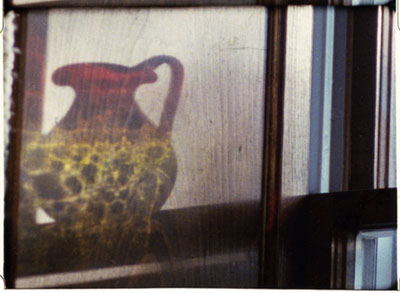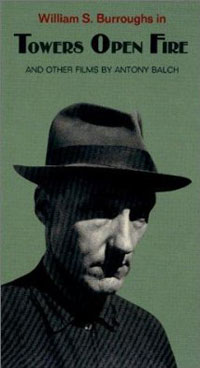“Robert Beavers, who will present a selection of his films at Vanderbilt’s Sarratt Cinema on Thursday”—tonight!—”is a major figure in the history of American experimental film whose films, to a large extent, are not what we might call experimental or avant-garde,” argues Michael Sicinski. “In terms of their sense of harmony and structure, Beavers’s films actually have much more in common with Renaissance or even classical Greek aesthetics than with the high modernism typically associated with the cinematic avant-garde. These works often feel like artifacts from another time, as if stone carvings had left a photographic residue suddenly discovered like a fossil, or we had somehow managed to recapture the light and space and dust particles between the domed ceiling of a Borromini church and a pair of 17th century eyes.”
Also in the Nashville Scene, Bilge Ebiri recommends Dan Sallitt‘s The Unspeakable Act, emphasizing that the “true revelation of the film is young actress [Tallie] Medel, who has to run a startling range of emotions and attitudes here—from bewildered, to judgmental, to desperate, to haughty, to indignant, to disaffected. And she has to do it all within the framework of Sallitt’s somber, restrained aesthetic, which doesn’t allow for big emotional outbursts or elaborate catharses. The result is an extraordinary high-wire act for both actress and director.” Tonight at Third Man Records.
The Guardian‘s running an excerpt from the last book by the late Eric Hobsbawm, Fractured Times: Culture and Society in the Twentieth Century: “I suggest that the cowboy, just because he was a myth of an ultra-individualist society, the only society of the bourgeois era without real pre-bourgeois roots, was an unusually effective vehicle for dreaming—which is all that most of us get in the way of unlimited opportunities.”
Also via Movie City News: Scott Raab‘s profile of Robert Redford for the cover of the April 2013 issue of Esquire and Daniel W. Drezner‘s funny little exercise in Foreign Policy: “The true TV connoisseur appreciates that the most insightful television show about world politics airing right now is, obviously, Girls.”
In the new issue of frieze, Sam Thorne talks with Hannah Perry, who incorporates her own and found footage into her installations and performances.
In other news. “The Independent Film Festival of Boston has set the lineup for their 2013 edition running April 24-30,” reports Indiewire‘s Peter Knegt. “The festival will feature 99 films alongside Q&A sessions, panel discussions, parties and events.”
Martin Scorsese has written a letter to New York’s City Planning Commission in support of the East Bowery Preservation Plan.
Shane Meadows‘s The Stone Roses: Made of Stone will see its premiere “at a secret location” in Manchester on May 30, reports the BBC. Meadows and the reunited band will be on hand, and the event will be “simultaneously broadcast to 100 cinemas across the UK.”
The 12th Annual Boston Turkish Film Festival opens today and runs through April 7.
And the Austrian Film Museum’s Dominik Graf series runs from today through April 4. Related viewing (26’09”): Olaf Möller and Christophe Huber interview Graf—in English.
More viewing. At Press Play, Matt Zoller Seitz introduces Nelson Carvajal‘s video essay on Peter Andrews, a.k.a. Soderbergh the cinematographer. Related: Ryan Gilbey in the New Statesman: “So farewell then, Steven Soderbergh.”
The Playlist‘s posted In the Mood for Doyle (54-01″), a 2007 documentary on cinematographer Christopher Doyle.
Richard Brody‘s DVD of the week is Sam Peckinpah’s The Getaway (1972).
And the cinetrix gathers yet more viewing.
In the works. “Kristen Wiig is in talks to reteam with her Anchorman 2 cohorts Will Ferrell and Adam McKay on the indie comedy Welcome to Me.” Tatiana Siegel has more in the Hollywood Reporter.
“The Emma Thompson period drama Effie, about one of the Victorian era’s most infamous love triangles, is now cleared for release after winning a second copyright case in New York against a US playwright who claimed it was based on his work.” Ben Child reports for the Guardian.
Obits. Back to the new issue of frieze, where William Fowler remembers filmmaker and distributor Antony Balch, who “has come to personify in my mind a very particular type of cinema experience. I romantically imagine the two London movie houses he managed—he really did everything when it came to film—to have been almost all that cinemas should be: spaces where the unusual and the unexpected can happen, where the doors are open to anyone and everyone feels welcome.”
“The actor Pat Keen, who has died aged 79, had a successful career in supporting roles for more than half a century,” writes Paul Bailey. “In 1962, John Schlesinger cast her in A Kind of Loving, adapted for film from the novel by Stan Barstow, as Christine Harris, a plain northern girl in love with a man who does not want her. There followed many years of distinguished work for television…. When she returned to the cinema, it was as Mrs. Wisely, an anxious mother on a motorbike, in Clockwise (1986), written by Michael Frayn and starring John Cleese. She was Mrs. Hudson in a dotty Sherlock Holmes frolic, Without a Clue (1988), in which the great detective (Michael Caine) is outwitted by an unusually sharp-eyed Dr Watson (Ben Kingsley), and she brought unobtrusive dignity to the part of the housekeeper in Shadowlands (1993), directed by Richard Attenborough.”
Also in the Guardian, Steve Holland remembers James Herbert, whose early novels “were compared by Stephen King to the music of the Sex Pistols… Herbert’s 23 novels have sold 54m copies worldwide. He was published in 34 languages, including Russian and Chinese. In 2010 he was made an OBE and received the Grand Master award at the World Horror Convention…. The Secret of Crickley Hall (2006) relates how a couple move to the West Country to try to recover from the disappearance of their son. It was adapted for BBC TV in 2012. The film and TV versions of Herbert’s other novels were not always successful: The Survivor (1981), directed by David Hemmings and starring Robert Powell, was shot in Australia and heavily cut for UK release. Rats (1982), released in the US as Deadly Eyes, featured dachshunds in rodent costumes. Haunted and Fluke (both 1995) received mixed reviews.”
For news and tips throughout the day every day, follow @KeyframeDaily on Twitter and/or the RSS feed. Get Keyframe Daily in your inbox by signing in at fandor.com/daily.






